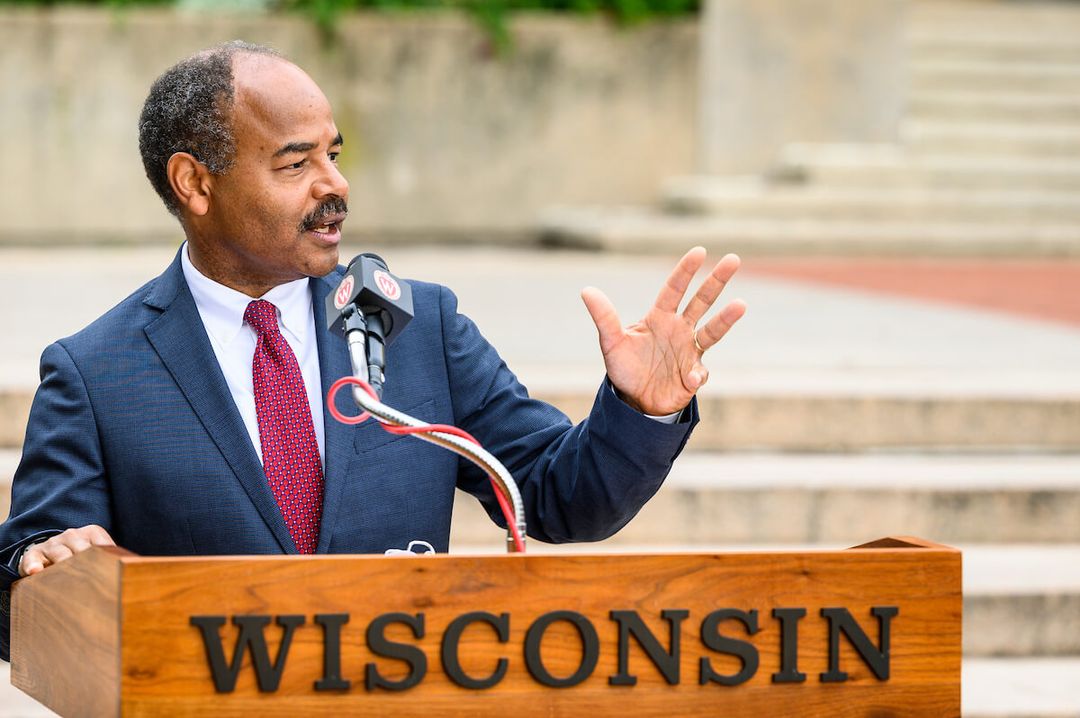Jon Pevehouse feels a growing sense of instability in the world.
“You’ve got a lot of uncertainty,” said the political science professor, citing the wars in Ukraine and Gaza and the rising conflict between the United States and Iranian-backed militia groups in the Middle East. “We’re living in a brave new world. About a year and a half ago, U.S. Secretary of State Antony Blinken started a lot of his talks and press conferences by saying, ‘The post–Cold War world is over. We have entered a new era of geopolitical competition.’ And we see that playing out on a daily basis in the Middle East. We see that playing out in Europe. We may increasingly see that playing out in other parts of the world as well, whether it’s Southeast Asia or Latin America. It’s a time of high uncertainty.”
Pevehouse and two of his UW political science colleagues joined Wisconsin Foundation and Alumni Association CEO Mike Knetter on The UW Now Livestream on February 13, 2024, to discuss instability and conflict around the globe. Yoshiko Herrera, former director of the UW’s Center for Russia, East Europe, and Central Asia, spoke about the nearly two-year-old war in Ukraine, and Steven Brooke, faculty director of UW–Madison’s Middle East Studies Program, spoke about strife in that region.
Herrera noted that, though the front lines in the Russia-Ukraine war have stabilized, the fighting is still destructive. “Ukraine is facing an ammunition [shortage] as well as shortage in manpower,” she said. “Russia has transitioned its economy to much more of a war footing, and they are willing to fight it out. You could say it’s a war of attrition at this point. I think that’s a fair characterization, but it is still a very active war. A lot of people continue to die.”
She added that American politics have increased the sense of uncertainty, both among the combatant nations and across Europe.
“There’s a lot of conflicts in the world, but at this point, the U.S. reputation and the reliability of the United States is really being questioned,” she said. “When you have a great divergence in presidential candidates or political parties on where America stands on very basic issues like support for NATO or supportive allies, it reasonably brings up questions about where the United States is going and whether the United States can be counted on.”
For Brooke, this period of instability points to increased difficulties ahead.
“I kind of wish we could figure out a way for political scientists to be able to talk about joyful and optimistic things,” he said. He described the shock that Israelis felt after the Hamas attack on October 7, 2023, and he called attention to the level of destruction that has followed Israel’s subsequent invasion of the Gaza Strip.
“We now have nearly 30,000 confirmed dead,” he said. “The majority of those are women and children, and there’s countless wounded. And now we have this new specter of famine and disease. Whatever you think about the motives about who is right and who is wrong, I think it’s important to recognize that this is a true humanitarian catastrophe of the highest order.”
Knetter served as moderator for the conversation and brought forward questions from viewers, who asked about oil, migration, and the intentions of other nations, particularly China.Tthough the discussion often covered dire situations in which America faces no good options, the professors noted points of optimism, as well. Instability, Pevehouse said, can lead to progress.
“Every major breakthrough has come after a crisis, right?” he asked, noting that the conflict in Gaza may motivate Israelis and Palestinians to move away from their entrenched positions with respect to each other. “Hopefully, out of this crisis comes some positive opportunity.”
